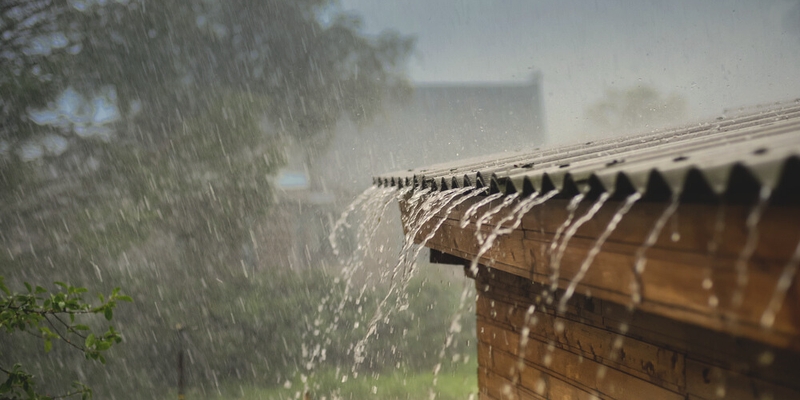
If you are not redirected within 30 seconds, please click here to continue.
Samedi: 10h – 16h HAE

If you are not redirected within 30 seconds, please click here to continue.
If you are not redirected within 30 seconds, please click here to continue.
How is climate change affecting home insurance premiums?

This article has been updated from a previous version.
As severe storms become regular occurrences across Canada, consumers may find their home insurance rates increasing — or they may face challenges finding coverage for their properties.
Floods and fires tend to be the biggest threat to Canadian communities; both can affect home and auto insurance rates. According to the Intact Centre on Climate Adaptation, flooding is the costliest disaster year-over-year with the cost of a flooded residential basement claim averaging more than $40,000.
As the frequency and magnitude of flooding continues to rise across the country, homeowners who face a higher risk of flooding may struggle to get the coverage they require.
Severe weather events are getting worse — and more expensive
Over the years, countries around the world have come to expect extreme weather due to climate change. That includes Canada.
Insurers are aware of the growing threats severe inclement weather and climate change can present. In a 2020 report titled Climate Risks: Implications for the Insurance Industry in Canada, the Insurance Institute of Canada (IIC) found that since the 1980s, property claim payouts due to severe weather damage is doubling every five to 10 years and this trend is expected to continue. The IIC expects significant losses in the years to come, with claims paid increasing from $2.1 billion a year to $5 billion by 2030.
And Canada’s right on track: According to Insurance Bureau of Canada (IBC), 2022 was the third most costly year on record, with $3.1 billion in insured damages as a result of rain, snow, floods, and the bomb cyclone that passed eastern Canada in December of that year.
This follows a pattern of increases from $2.48 billion in insured damage in 2021, $2.46 billion in 2020, and $1.56 billion in insured damage in 2019. These escalating financial losses due to severe weather are impacting insurance providers, homeowners, governments, and taxpayers.
Mitigating flood and fire risks: Preventative measures for homeowners
If the cost of property claims continues to rise, home insurance premiums are sure to follow. So, what can homeowners do to reduce the risk of weather-related events on their properties?
Begin by reviewing your home insurance policy. For example, do you have adequate coverage for all perils such as floods? What is excluded? Damage by floodwater is not typically covered in a standard home insurance policy, which is why you should ensure you have optional enhancements added to your policy for overland flooding and sewer backup coverage. It never hurts to have a chat with your insurance agent or broker and ask for details about your policy.
How to floodproof your property
Taking preventative measures can help mitigate your home’s flood risk, including:
- Ensure your home’s eavestroughs are free of blockages.
- Keep the downspouts pointing away from your house.
- Get a sump pump with a battery backup installed in your basement.
- Seal any cracks in walls, floors, windows, and the foundation.
- Clear debris from grates curbside if there are any near your home to allow water to drain into a storm sewer.
More information: 32% of Canadians unaware their standard home insurance policy lacks flood protection: Survey
How to fireproof your home
Depending on where your home is located, you may wish to consider taking a few steps to fireproof your home against the ravages of a forest fire or wildfire.
According to Natural Resources Canada,the length of the typical fire season is expected to become longer in almost every region of the country. That does not bode well for Canada – a nation rich in forests and prairie plains that are like tinderboxes waiting to ignite in dry conditions.
Here are a few things homeowners can do to safeguard their homes from a wildfire:
- Rake up dead leaves, dry twigs, cut grass, and get rid of dry vegetation in your front and backyard.
- Avoid planting coniferous or evergreen trees with cones and needles near your house since they are highly flammable.
- Upgrade your roof, doors, siding with fire-resistant materials and use dual-paned windows.
- Keep patio decks free of debris, dead plants, and other flammable items such as a propane tank.
Unfortunately, there’s very little that individual homeowners and citizens can do to mitigate the ongoing severe weather events roiling across the country. However, understanding the biggest climate-related threats you’re likely to face, and anticipating how they might affect your property will go a long way to keeping your home safe, warm, and dry.
Don't waste time calling around for home insurance
Use RATESDOTCA to shop around and compare multiple quotes at the same time.
Finding the best home insurance coverage has never been so easy!
Get money-saving tips in your inbox.
Stay on top of personal finance tips from our money experts!










